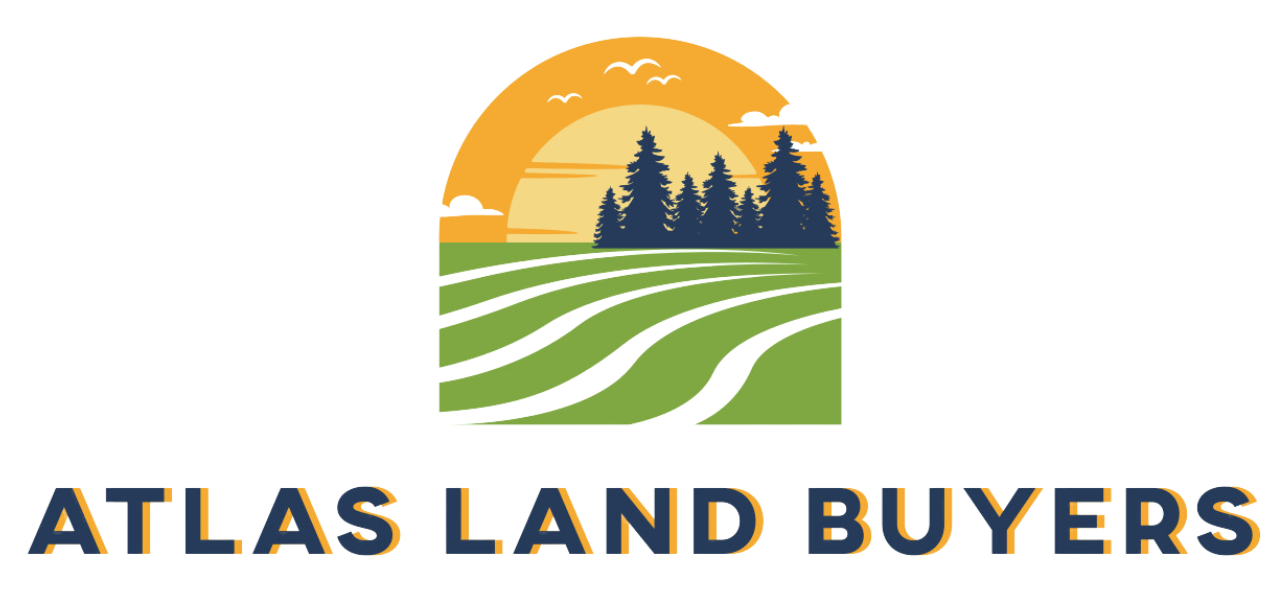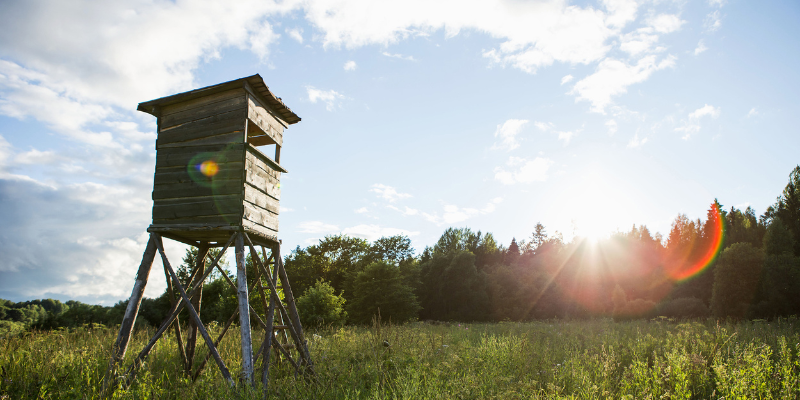
Understanding the Hunting Land Market in Texas
Understanding the hunting land market in Texas is critical for maximizing profits when selling such properties. Texas has an abundance of wildlife, making it an ideal destination for both hunters and investors.
Property values are significantly influenced by location, land size, accessibility, and proximity to water sources or game populations. Land with diverse ecosystems that support deer, turkey, quail, hogs, and other wildlife is more likely to attract buyers.
Furthermore, improvements like blinds, food plots, and well-maintained trails increase appeal and market value. The demand for hunting land can fluctuate depending on economic conditions and seasonal trends; therefore, staying current on market dynamics is critical.
Understanding buyer preferences, such as trophy hunting or family-friendly environments, can help you tailor your marketing strategy more effectively. Working with local real estate experts who specialize in rural properties can provide valuable insights into pricing strategies and potential buyer networks in the competitive Texas hunting land market.
Key Factors Affecting Hunting Land Value in Texas
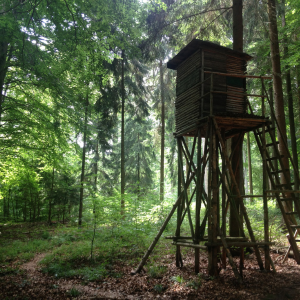
There are a few important things to think about when figuring out how much hunting land in Texas is worth. These things can have a big effect on how easy it is to sell and how much it sells for. Location is very important because properties that are close to cities or popular hunting spots tend to get more interest from people who want to buy them.
The size and accessibility of the land also affect how appealing it is. Larger plots that are easy to get to from roads or highways are often more desirable. The variety and number of animals on the property can make it more appealing to hunters who want to make the most of their time outside.
Also, having lakes, rivers, or ponds on the land makes the ecosystem richer and raises the land’s value. The type of terrain, such as rolling hills, thick forests, or open fields, may affect hunting chances and what buyers want.
Having features like cabins, blinds, or established trails can boost a property’s functionality and make it more appealing to buyers. It’s also essential to understand local zoning regulations and land-use restrictions to identify potential development opportunities or conservation easements that may attract specific types of buyers. Working with a company that buys homes in Arlington and surrounding Texas cities can provide valuable insights into what improvements and legal considerations matter most in your area.
Environmental Factors That Can Influence the Sale Prices of Rural Lands
Understanding the environmental factors that can influence sale prices is critical when selling hunting land in Texas for maximum profit. Rural lands’ unique characteristics, such as soil quality, water sources, and biodiversity, have a significant impact on their market value.
Properties with fertile soil and abundant natural resources frequently attract higher bids because they have greater agricultural and recreational value. Access to dependable water sources, such as rivers or lakes, can significantly increase a property’s appeal to buyers looking for ideal hunting grounds or potential development sites.
Furthermore, the presence of diverse wildlife populations can increase the desirability of hunting land by providing abundant game habitat for hunters. Proximity to protected areas or conservation easements can also increase property values by encouraging sustainable land use and preserving natural beauty.
Understanding environmental impacts is crucial for sellers competing in the Texas real estate market.
Legal Considerations When Selling Rural Land in Texas
Understanding the legal aspects of selling hunting land in Texas is critical for maximizing profits. Before you proceed with the sale, you must first understand your property rights and confirm that you have clear title ownership.
A thorough title search can help prevent future disputes with potential buyers. Additionally, learn about any zoning laws or land-use restrictions that may limit how the rural property can be used, as these can affect its market value.
Texas requires sellers to disclose any known environmental hazards or boundary disputes that could sway the buyer’s decision-making. A real estate attorney who specializes in rural land transactions can help you navigate local regulations and tax issues.
Handling legal requirements properly not only shields you from potential liability but also helps build trust with prospective buyers, leading to a more seamless transaction and potentially greater returns on your hunting land investment. To better understand what steps to take, check out how Atlas Land Buyers buys homes to see how the process can work in your favor.
Essential Documents Needed to Sell Your Hunting Land in Texas
When selling hunting land in Texas, having the proper documents is critical to maximizing profits and ensuring a smooth transaction. First and foremost, a clear and current title deed is required, as it verifies your legal ownership of the property.
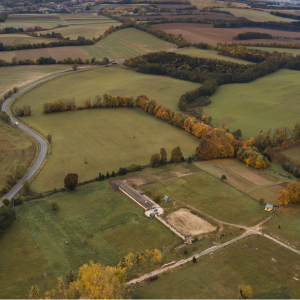
Survey maps are also useful because they show the exact boundaries of your property, which can be critical for potential buyers determining its value for hunting purposes. Furthermore, providing any existing mineral rights documentation can pique buyer interest, especially in Texas, where such rights can be lucrative.
Include copies of property tax records, which provide transparency into the annual expenses associated with the land. If there are any existing leases or easements on the property, such as for grazing, oil exploration, or other purposes, make sure they are documented and easily accessible.
Wildlife management plans or conservation easements, if applicable, can increase appeal by demonstrating sustainable practices that protect game species habitat. It is also critical to ensure that all zoning permits are in line with hunting activities in order to avoid legal complications in the future.
Having these critical documents organized and ready boosts buyer confidence while also streamlining negotiations and closing processes.
The Importance of Clear Boundaries and Surveys When Selling Land
If you want to make the most money selling hunting land in Texas, you need to make sure the boundaries are clear and the surveys are up to date. This will help you attract potential buyers. A clear property line stops arguments and gives potential buyers confidence in the deal.
Accurate surveys are important because they show the exact size and shape of the land, as well as valuable features like water sources, wooded areas, and possible access points that could make the property more appealing to hunters. Hiring a professional surveyor can also find any encroachments or easements that could lower the land’s value or make it less useful. This gives sellers the chance to fix these problems before they become a problem.
Clear boundary markers not only keep things from getting messy legally, but they also show that the seller is honest, which makes the property more appealing to serious buyers who care about clarity and security in their investment. Sellers can greatly improve their chances of making a successful sale at a good price by putting these things first.
Tax Implications of Selling Hunting Properties in Texas
It is essential to comprehend the tax implications when selling hunting land in Texas in order to optimize your profits. The sale of hunting properties frequently results in capital gains tax, which is assessed on the difference between the property’s sale price and its original purchase price.
In order to potentially alleviate this tax burden, sellers should consider strategies such as a 1031 exchange, which enables the reinvestment of proceeds into a similar property, thereby deferring capital gains taxes. Furthermore, it is crucial to be cognizant of property taxes, as they may have an impact on the net proceeds of the sale.
Consulting with a tax professional who is knowledgeable about Texas real estate laws can offer valuable insights into potential deductions and exemptions, thereby further optimizing your financial outcome. Accurately calculating gains and minimizing taxable income can also be significantly influenced by maintaining meticulous records of any improvements or expenses related to the land.
Sellers are adequately equipped to negotiate the financial implications of selling hunting land in Texas when they comprehend these complexities.
How Conservation Easements Can Affect the Sale of Rural Properties
Conservation easements have a significant impact on the sale of rural properties in Texas, especially for those looking to maximize profits from hunting land. These legal agreements limit certain types of development and land use, preserving the property’s natural state while potentially providing tax benefits.
When selling hunting land with a conservation easement, it’s critical to understand how these restrictions may appeal to buyers looking for long-term investment opportunities or who care about wildlife conservation. While some buyers may value the preserved ecosystem and increased biodiversity that come with such easements, others may view them as limiting development potential.
To attract environmentally conscious investors, sellers should highlight the long-term ecological benefits of conservation easements, as well as potential tax incentives. Understanding local and federal conservation programs can also help sellers position their property more effectively in the market.
By effectively communicating these aspects, sellers can reach a niche market that values both profitability and environmental stewardship.
The Role of Wildlife Management Programs in Increasing Property Value
Wildlife management programs play an important role in increasing the value of hunting land in Texas, making it more appealing to prospective buyers. Landowners can improve habitat quality by implementing well-planned wildlife management strategies, attracting a diverse range of game species, including deer, turkey, and quail.
This biodiversity not only enhances the hunting experience, but also increases the property’s marketability and value. Controlled burns, selective timber harvesting, and the establishment of food plots to support healthy animal populations are all examples of effective wildlife management practices.
Furthermore, these programs support ecological balance and promote the sustainable use of natural resources, making the land more attractive to environmentally conscious buyers. With the growing demand for high-quality hunting experiences, properties that feature well-developed wildlife management plans are more likely to stand out in Texas’s competitive market. If you’re looking to make your land more marketable, Atlas Land Buyers can help you navigate the process effectively.
Seasonal Trends and Their Impact on Selling Rural Land in Texas
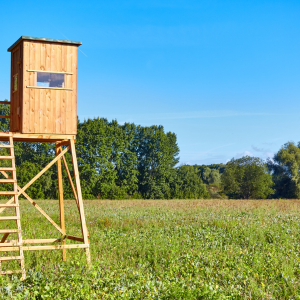
If you want to make the most money selling hunting land in Texas, you need to know how the seasons affect prices. Demand and prices for rural properties, like hunting land, change throughout the year in the real estate market.
Many people think that spring and early summer are the best times to buy rural land in Texas because buyers want to invest before the hunting season starts in the fall. During these months, properties look more appealing because of the lush landscapes and mild weather, which draws in more potential buyers.
On the other hand, winter months tend to be less busy because the weather is worse, and some rural areas are harder to get to. But serious investors might still be looking for deals during this time, even if they are not in season.
Also, knowing when local animals are active and when hunting seasons are can help you choose the best times to list your property. For example, listing just before deer or turkey season can draw in buyers who want to take advantage of immediate hunting opportunities. If you plan your sale around these seasonal patterns, you can make your property more visible and in demand, which will lead to higher offers from people who are interested.
How Do I Sell My Hunting Land by Owner in Texas?
If you plan carefully, selling your Texas hunting land by owner can be a very profitable business. To get the most money out of your hunting land in Texas, you should first do a thorough market analysis to find out what the current demand and price trends are.
Point out the things that make your property stand out, like water sources, a wide variety of wildlife, and easy access. These things add a lot of value. It’s very important to make sure you have all the right paperwork, like a clear title and any surveys or environmental assessments that are needed.
Good marketing is important. Use online sites that specialize in selling real estate and hunting land to reach people who are actively looking for properties like yours. Also, your listing will stand out more if you have professional-quality pictures and virtual tours.
You can also get more exposure by networking with local hunting clubs and going to trade shows. When you sell your property by owner, knowing Texas land laws and closing procedures will help the process go smoothly.
If you focus on these strategies, you can sell your Texas hunting land quickly and for the most money.
How Much Is Hunting Land Per Acre in Texas?
To maximize profits when selling hunting land in Texas, it’s important to know the average price per acre. The value of hunting land per acre in Texas varies significantly depending on location, wildlife population, and land improvements.
On average, hunting land in Texas costs between $2,000 and $5,000 per acre, with prime locations fetching even higher prices. Because of their diverse ecosystems and abundant game species, key regions such as the Hill Country and East Texas may command higher prices.
Consider hiring a local real estate expert who specializes in rural and recreational properties to determine the true value of your property. They can provide insights into current market trends and assist you in setting a competitive price that attracts serious buyers while maximizing your return on investment.
What Is the Fastest Way to Sell the Land?
In order to expedite the sale process and maximize profit when selling hunting land in Texas, it is essential to employ strategic methods. Initially, ensure that your property is accurately appraised in order to establish a competitive price that accurately reflects its true market value.
Emphasize the primary attributes that buyers find appealing, including accessibility, water sources, and an abundance of wildlife. Utilize drone footage and high-quality photographs to emphasize the land’s potential.
By collaborating with a cash home buyer in Austin and other cities in Texas who specializes in rural or hunting properties, you can increase your exposure by leveraging their network and expertise. Utilizing social media marketing and listing on prominent real estate platforms can substantially increase visibility.
Offering financing options that are more adaptable may also attract additional potential buyers. Combining these strategies will enable you to sell your hunting land in Texas in a timely and profitable manner.
| REAL ESTATE AGENTS | BROKER | REAL ESTATE BROKERS | RANCH | RANCHES | CATTLE RANCH |
| CATTLE RANCHES | STATE OF TEXAS | BROKERS | FARM | INBOX | |
| ACREAGE | PASSWORD | WEST TEXAS | CASH | ASSETS |
